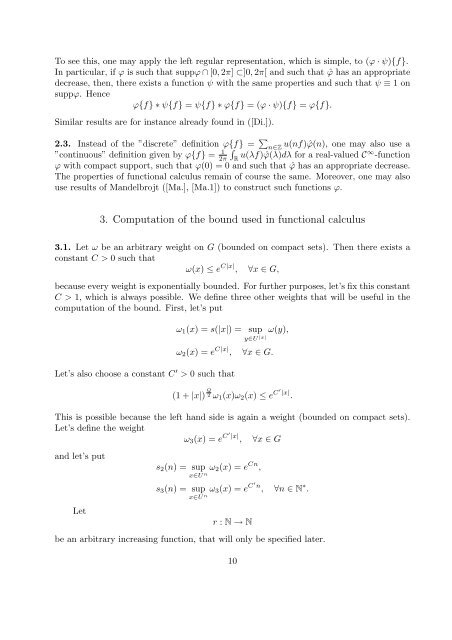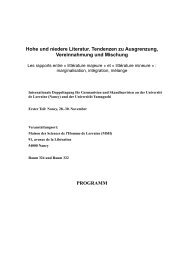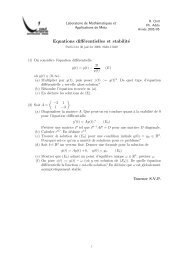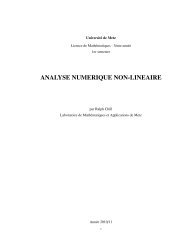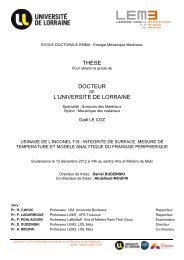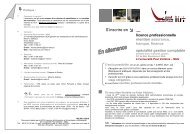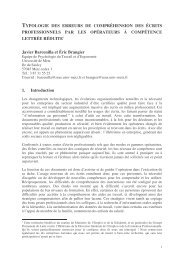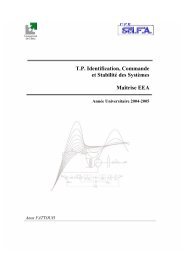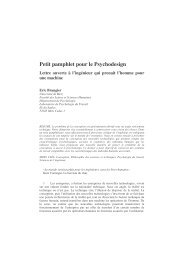Functional calculus in weighted group algebras
Functional calculus in weighted group algebras
Functional calculus in weighted group algebras
You also want an ePaper? Increase the reach of your titles
YUMPU automatically turns print PDFs into web optimized ePapers that Google loves.
To see this, one may apply the left regular representation, which is simple, to (ϕ · ψ){f}.In particular, if ϕ is such that suppϕ ∩ [0, 2π] ⊂]0, 2π[ and such that ˆϕ has an appropriatedecrease, then, there exists a function ψ with the same properties and such that ψ ≡ 1 onsuppϕ. Henceϕ{f} ∗ ψ{f} = ψ{f} ∗ ϕ{f} = (ϕ · ψ){f} = ϕ{f}.Similar results are for <strong>in</strong>stance already found <strong>in</strong> ([Di.]).2.3. Instead of the ”discrete” def<strong>in</strong>ition ϕ{f} = ∑ ∫n∈Zu(nf) ˆϕ(n), one may also use a”cont<strong>in</strong>uous” def<strong>in</strong>ition given by ϕ{f} = 12π R u(λf) ˆϕ(λ)dλ for a real-valued C∞ -functionϕ with compact support, such that ϕ(0) = 0 and such that ˆϕ has an appropriate decrease.The properties of functional <strong>calculus</strong> rema<strong>in</strong> of course the same. Moreover, one may alsouse results of Mandelbrojt ([Ma.], [Ma.1]) to construct such functions ϕ.3. Computation of the bound used <strong>in</strong> functional <strong>calculus</strong>3.1. Let ω be an arbitrary weight on G (bounded on compact sets). Then there exists aconstant C > 0 such thatω(x) ≤ e C|x| , ∀x ∈ G,because every weight is exponentially bounded. For further purposes, let’s fix this constantC > 1, which is always possible. We def<strong>in</strong>e three other weights that will be useful <strong>in</strong> thecomputation of the bound. First, let’s putω 1 (x) = s(|x|) =sup ω(y),y∈U |x|ω 2 (x) = e C|x| , ∀x ∈ G.Let’s also choose a constant C ′ > 0 such that(1 + |x|) Q 2 ω1 (x)ω 2 (x) ≤ e C′ |x| .This is possible because the left hand side is aga<strong>in</strong> a weight (bounded on compact sets).Let’s def<strong>in</strong>e the weightω 3 (x) = e C′ |x| , ∀x ∈ Gand let’s putLets 2 (n) = supx∈U n ω 2 (x) = e Cn ,s 3 (n) = supx∈U n ω 3 (x) = e C′n , ∀n ∈ N ∗ .r : N → Nbe an arbitrary <strong>in</strong>creas<strong>in</strong>g function, that will only be specified later.10


